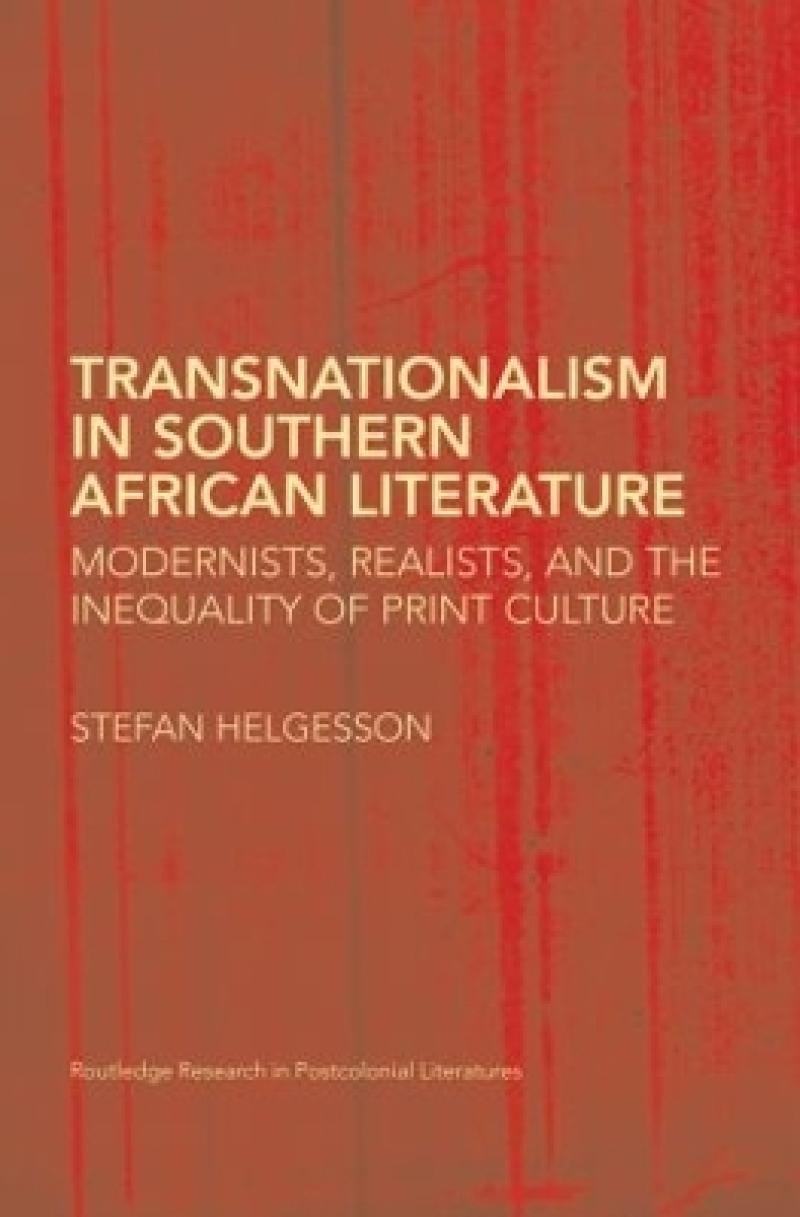<p>"Helgesson's book is to my knowledge the first monograph to attempt a systematic theorisation of these intra-African connections and what they reveal. Helgesson's work breaks important ground. I hope the lessons his book teaches us will be given their due by specialists in the field."<br /><em>- Shane Graham, Utah State University</em></p><p><strong>'Helgesson's book offers a perceptive, closely argued and richly documented study of how the introduction of the print medium and culture interfered with the existing forms of literary expression in Southern Africa and was appropriated by colonial writers as an access to modern agency and identity in their struggle against colonialism.'</strong> - <em>Commonwealth Essays and Studies</em></p>
Considering the growing interest in South African Literature at the moment, this study looks at both the Anglophone literature of South Africa and the lusophone literature of Angola and Mozambique.
Stefan Helgesson suggests that the prevalence of ‘colonial’ languages such as English and Portuguese in ‘anticolonial’ or ‘postcolonial’ African Literature is primarily an effect of the print network. Helgesson aims to demystify the authority of English and Portuguese by stressing the materiality of the print medium and emphasising the strong transnational and transcontinental vectors of southern African literature after the Second World War.
This is the first study ever to compare literature and literary criticism in English and Portuguese from the southern African region. It looks at the years 1945-1975 and not only highlights a largely forgotten legacy of modernism, but also reopens the debate on literary realism in southern Africa. The cities of Johannesburg, Maputo (then Lourenço Marques) and Luanda are the key geographical nodes of the book; the important intellectual developments in Maputo and Luanda at this time are little known in the English-speaking world. By looking at literary journals and the genres of poetry, prose narrative and criticism, the book maps the transnational networks which enabled writers and critics such as Lewi Nkosi, Nadine Gordimer, Mário Pinto de Andrade, and Bernardo Honwana to negotiate their marginal position relative to dominant centers of literary authority. The achievements of these writers, the book argues, can only be assessed in relation to this marginalization and the often racialized predicament of the print medium. The languages of English and Portuguese offer different literary possibilities in this context, which is due to their uneven transnational strengths as well as local factors. In brief, this is a media-specific study of the unequal reality of "world literature."
